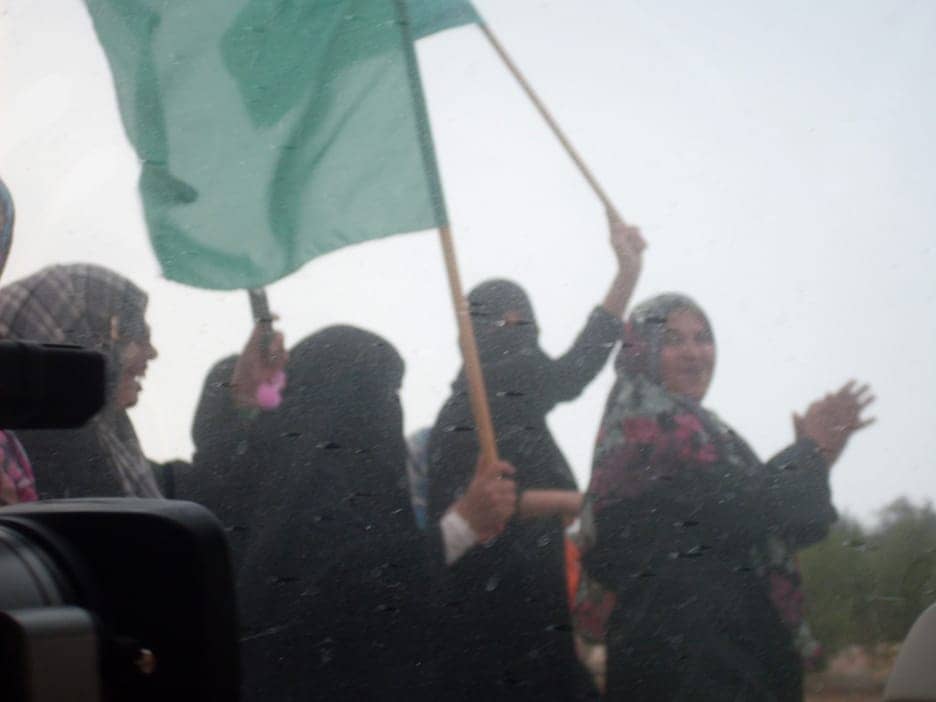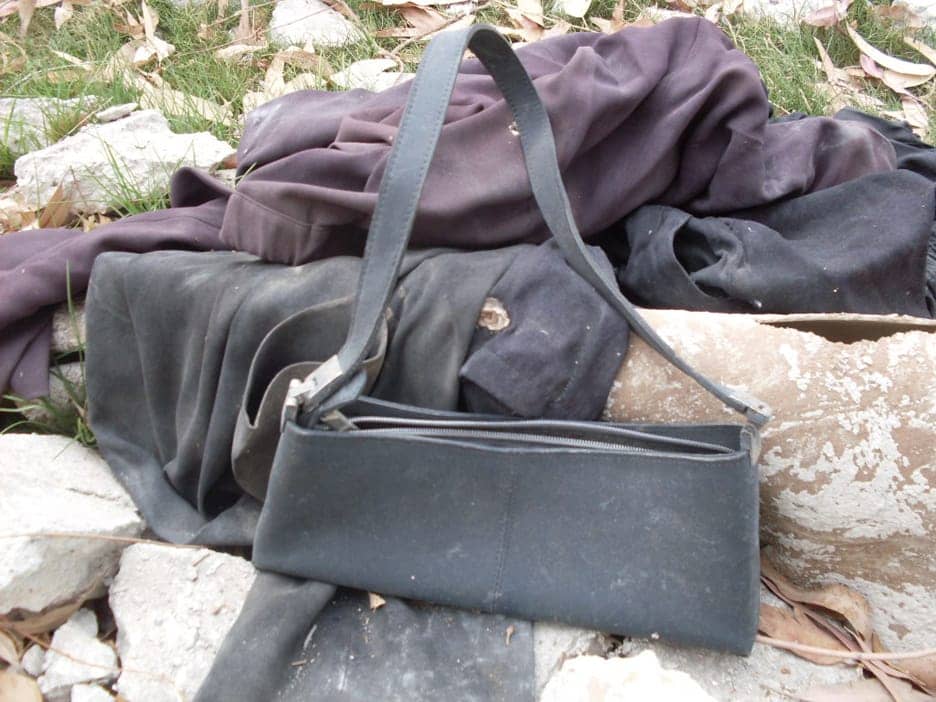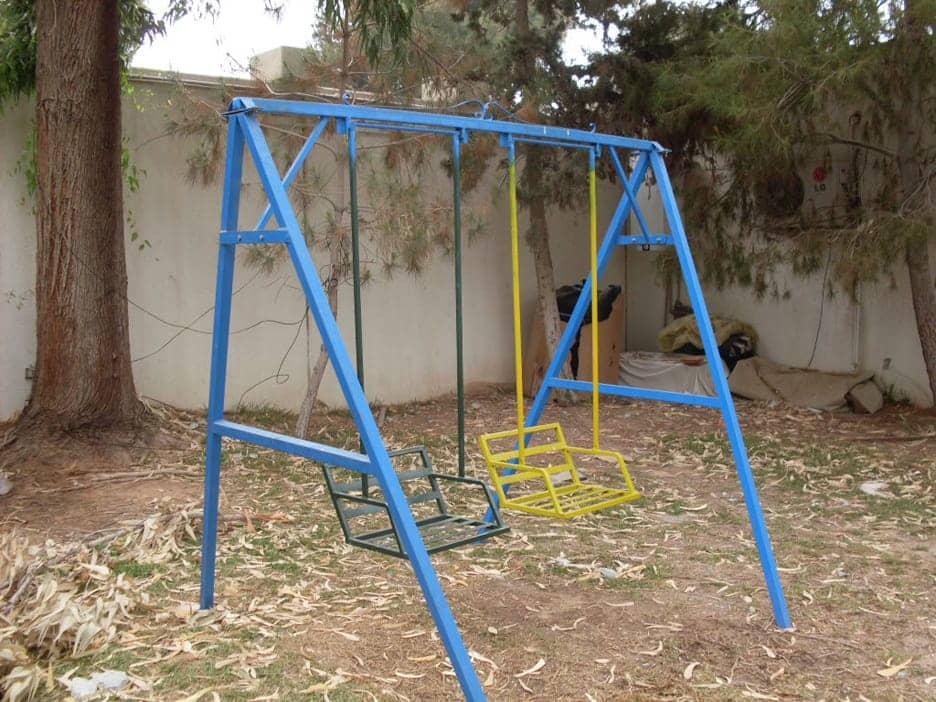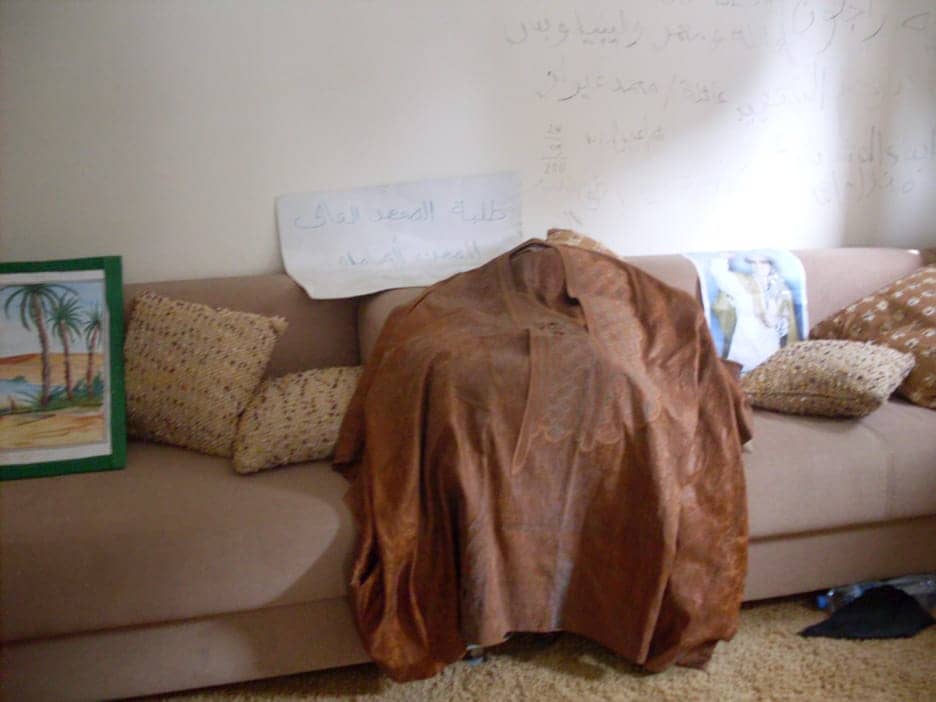On Libyan-Tunisian border, it’s back to the future with refugees
Djerba, Tunisia, June 3-4, 2011 – During the last air sanctions against Libya, imposed by the United Nations in 1992 over alleged Libyan involvement in the bombings of PanAm 103 and UTA 772, many Libyans traveling to and from Tripoli were forced to fly through Tunisia, traveling overland to and from the Tunisian border to their homes in Libya. With European Union sanctions now imposed on Libya, the old travel regime is back in force.
However, there is a new dimension to the air embargo on Libya. Attracted to the Libyan-Tunisian border by refugees, most African guest workers from sub-Sahara and pan-Sahel African nations, fleeing the fighting in their country, scores of international aid workers now occupy the tourist hotels of Djerba, the once popular Tunisian resort that has fallen on hard times after tour operators canceled excursions following the Tunisian revolution earlier this year.
Today, prior to crossing into Libya, this reporter is witnessing representatives of the “misery industry,” young international aid workers with groups like the International Committee of the Red Cross, EU and International Organization for Migration lounging around the tourist hotels mingling with German and French pensioners eager to take advantage of the special travel packages being offered by a depressed Tunisian tourist industry.
Not only is war good for the weapons industry, but refugee crises brought about by Western-implemented wars fatten the wallets of NGOs anxious to cash in on the human misery created by Pentagon and NATO overt and covert military operations. Meanwhile, here in Djerba, near the Libyan frontier, it’s poolside and cold Heinekens for the NGO community here to “save” the Libyan refugees.
Western Libya portrait is not what is being painted by the Western media
Tripoli, Libya, June 4-5, 2011 – Western media reports continue to indicate that Libyan rebels trying to oust Libyan leader Muammar Qaddafi from power, backed by daily NATO air strikes, are gaining ground in western Libya. During a six-hour drive from the Tunisian border to Tripoli, the Libyan capital, this reporter saw no signs of Libyan rebel successes in western Libya. In fact, I witnessed a spontaneous pro-Qaddafi demonstration on the main Tunisia-Tripoli highway in a town about one and a half hours west of Tripoli.

The DIGNITY Delegation witnessed a spontaneous pro-Qaddafi demonstration on the main highway from Tunisia to Tripoli. – Photo: Wayne Madsen
The green flag of the Libyan Arab Jamahiryah not only adorns flag poles in towns from Tripoli to the Tunisian border, but a number of private residences are flying the green flag from their rooftops, on flag poles, and even from outside of top floor windows in medium size and small towns alike along the main highway.
There are some telltale signs of previous fighting in the western part of the country – bullet holes in the walls of some buildings and even some more extensive structural damage – but there are no signs that the rebels, backed by the United States, NATO and the European Union, have any substantial support in western Libya.
The one major sign of the Libyan civil war lies not in western Libya but across the Tunisian border where several refugee tent cities have been set up to accommodate thousands of refugees, most of them Black African guest workers from sub-Sahara and Sahel nations who were set upon by rebels who said the workers were “mercenaries” brought to Libya by Qaddafi to fight on his behalf.
In fact, there is a strong anti-Black racialist element within the Libyan rebel movement that used the mercenary meme to justify heinous war crimes by rebel units against Blacks from other African nations, as well as native Libyan Blacks.
While many of the refugee camps on the Tunisian side of the Libyan frontier are sponsored by the International Committee of the Red Cross, one is funded by the United Arab Emirates, one of the nations participating in President Obama’s “coalition of the willing” that is waging a war on behalf of the Libyan rebels. From our hotel on the Mediterranean coast, we expect to see and hear the attacks conducted against military and some civilian targets a further few miles inland in downtown Tripoli.
The EU and NATO sanctions on Libya are being severely felt by Libya’s civilians. Petrol stations are rationing gasoline and long lines of cars sit waiting for gasoline to be delivered to the pumps.
The NATO, EU and U.S. policy of “collective punishment” of western Libya’s civilian population is being compared to Israel’s collective punishment of the Palestinians of Gaza and the West Bank. In fact, many Libyans believe that Obama’s crippling sanctions on western Libya were crafted by Israel’s lobby in Washington, which pressured the Obama administration into adopting them.
NATO has conducted nightly air strikes against western Libya, including downtown Tripoli, since March 19. The attacks begin around 12 midnight local time and at the time of this report we are expecting another NATO bombing of Tripoli in a little less than an hour.
NATO war crimes in Libya exposed
Tripoli, Libya, June 5-6, 2011 – In the current NATO war on Libya, the citizens of European and North American NATO countries are being treated to the largest propaganda blitz by their governments in cahoots with corporate media outlets since the U.S.-led invasions and occupation of Iraq. The situation on the ground in Tripoli, the Libyan capital, could not more different from what is being portrayed by Western news networks and newspapers.

Col. Qaddafi's wife's handbag and some of her clothing were blown several hundred feet from the bedroom of her home when it was hit by bunker buster bombs fired from a U.S. warplane on April 30. – Photo: Wayne Madsen
The NATO missile attack that killed Muammar Qaddafi’s son, Seif al Arab Qaddafi, on April 30, was an attempt to kill Muammar Qaddafi himself. This editor visited the devastated home where Seif was killed, along with his friend and three of Muammar Qaddafi’s grandchildren.
The only reason Muammar Qaddafi survived the blast was that he was away from the main residence tending to some animals, including two gazelles, kept in a small petting zoo maintained for his grandchildren. Muammar Qaddafi escaped the fate of his son and grandchildren by only about 500 feet.
The residence was hit by bunker buster bombs fired from a U.S. warplane. One of the warheads did not detonate and was later removed from what remained of a bedroom in the home. Libyan authorities do not have the technical capabilities to determine if the warhead contained depleted uranium.

The Pentagon insists that the Qaddafi residence was a military command center. Perhaps the Pentagon mistook the above equipment for what the Pentagon brass trains on every day. – Photo: Wayne Madsen
NATO and the Pentagon claimed the residence was a military compound, yet there is no evidence that any military assets were located in the residence that was flanked by the homes of a Libyan doctor and businessmen. The Qaddafi residence actually is owned by Qaddafi’s wife.
The neighbors’ homes were also badly damaged in the U.S. air attack and are uninhabitable. Only a few hundred yards away from the Qaddafi compound sits the embassy of Cote d’Ivoire.
The presence of a foosball table and swing set in the yard of the Qaddafi compound belies the charge by the Pentagon that the home was a military target.
However, considering that Qaddafi was present in the compound during the attack, it is clear that President Obama violated international law and three executive orders signed by three past presidents – Ford, Carter, and Reagan – in trying to assassinate the Libyan head of state. In fact, while Obama’s order to kill Qaddafi was being carried out, the President of the United States was preparing to yuck it up with Washington’s illuminati and Hollywood’s glitterati at the White House Correspondents’ Dinner in Washington.

This is the garment Col. Qaddafi was wearing in the living room before he left for the backyard children’s petting zoo, where he was tending to the animals when the U.S.-NATO air strike hit the house. – Photo: Wayne Madsen
Obama’s order to kill Qaddafi is reminiscent of George W. Bush’s order to kill Sadaam Hussein at the outset of the U.S. war against Iraq, an assassination order that was also a violation of international and U.S. law.
Putting into context what occurred at Mrs. Qaddafi’s home and the aftermath, let one say that there is an unprovoked and surprise enemy missile attack on a secondary U.S. presidential residence, say Camp David. The world’s major media then claims that the attack was justified because the U.S. president was committing unsubstantiated war crimes, all reported from sketchy sources. A group of independent journalists and human rights activists drive to Camp David and are welcomed by a plainclothes member of the Secret Service’s Presidential Protective Division.
The Secret Service official then proceeds to show the delegation one of the bombed out bedrooms of the main residence and points out that one of the pulverized bedrooms is where the president’s daughter was killed in the attack. The delegation is then shown the First Lady’s singed handbag thrown several hundred feet away in the explosion.

This gazelle is one of the fortunate but still traumatized survivors of the children's petting zoo. – Photo: Wayne Madsen
Although the president was taking a walk away from the main residence, the delegation is shown a windbreaker bearing the presidential seal lying on the couch of the destroyed living room. A room said to contain military command and control systems is then found by the delegation to have a destroyed pool table and a shattered pinball machine.
The attacking nation claims that the Camp David compound was a security threat. But the American people rally to support their president and his family after the attack.
Now, you can begin to understand how the people of Libya feel after the U.S. attack on Mrs. Qaddafi’s house that killed her and her husband’s son and three grandchildren, along with a family friend.
The DIGNITY Delegation of independent journalists from across the United States is on a truth-telling, fact-finding mission to Libya. Headed by former Congresswoman Cynthia McKinney, the delegation will be joined by former Sen. Mike Gravel and former U.S. Attorney General Ramsey Clark. For more information, contact Don DeBar at dondebar@optonline.net.

